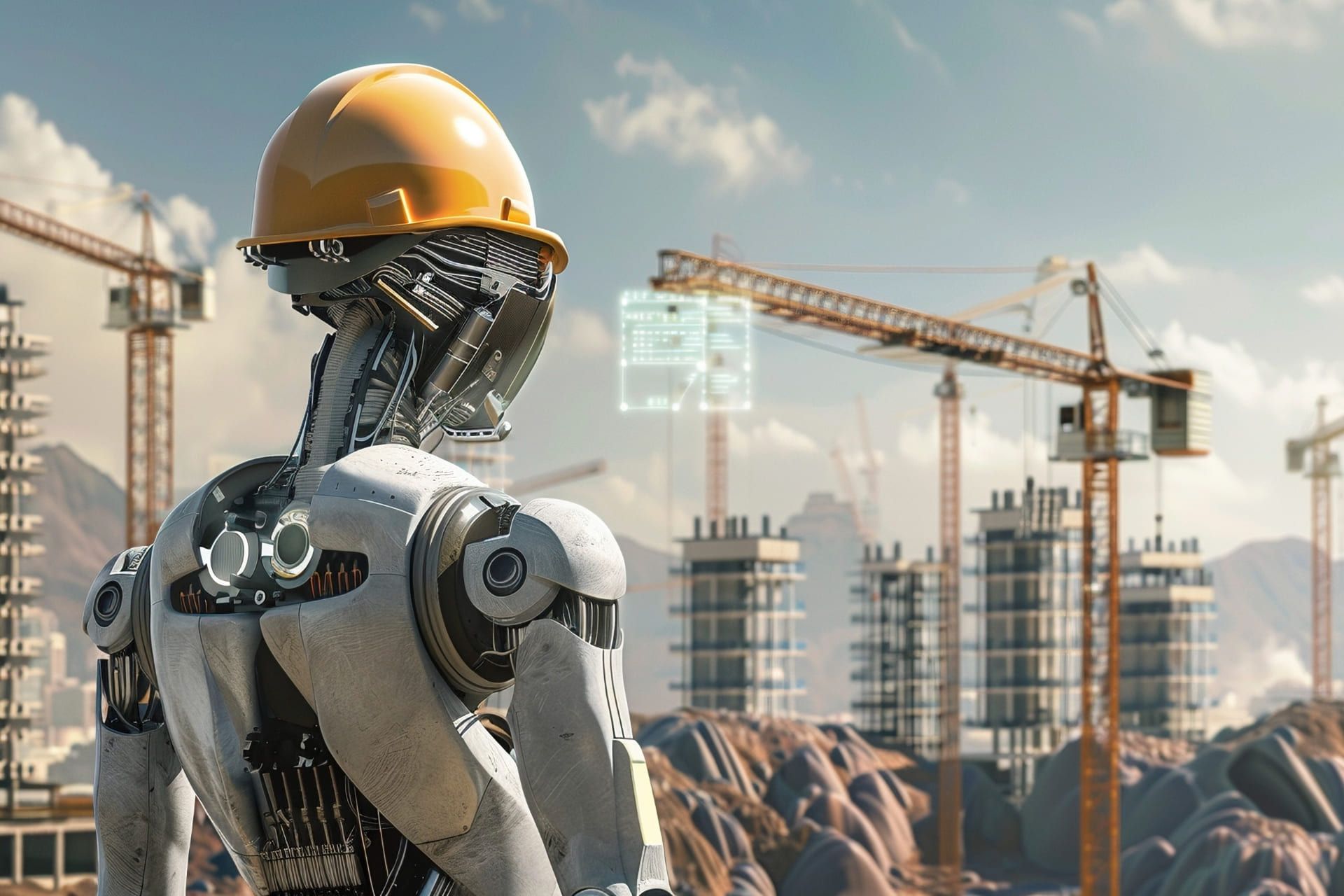

Generative AI is significantly transforming the construction industry
Generative AI is significantly transforming the construction industry, offering innovative solutions that enhance productivity, improve designs, and streamline maintenance processes. Here's a look at how generative AI is reshaping various stages of construction:
1. Design and Planning
Generative AI algorithms can assist architects and engineers by creating optimized designs based on specified parameters such as space, materials, budget, and environmental considerations. By leveraging vast datasets, AI can generate multiple design options quickly, enabling more creative and efficient solutions. These designs are not only aesthetically appealing but also structurally sound and energy-efficient.
- AI-Driven Design Tools: Tools like generative design software can propose a variety of design alternatives, helping architects find the most efficient layout and structure.
- BIM (Building Information Modeling): AI enhances BIM by enabling real-time updates, predictive modeling, and the integration of design changes, improving collaboration and reducing errors.
2. Construction Process Optimization
Generative AI can optimize construction scheduling, resource allocation, and labor management. AI algorithms can predict project timelines and suggest improvements, ensuring projects stay on track and within budget.
- Scheduling and Project Management: AI can analyze historical data and create more accurate schedules, minimizing delays and ensuring resources are allocated effectively.
- Supply Chain Management: Generative AI can predict material shortages or delays, allowing for proactive sourcing and supply chain optimization.
3. Predictive Maintenance and Monitoring
Once construction is complete, generative AI continues to play a crucial role in maintenance and facility management. AI-powered systems can predict when equipment or infrastructure is likely to fail, allowing for timely maintenance and reducing downtime.
- Smart Building Systems: AI can monitor building systems such as HVAC, lighting, and security, identifying inefficiencies or potential issues before they become critical.
- Maintenance Optimization: By analyzing data from sensors embedded in the structure, AI can predict when maintenance is required, ensuring the longevity of the building and reducing repair costs.
4. Safety and Risk Management
Generative AI helps improve safety on construction sites by analyzing real-time data from sensors, cameras, and wearable devices to detect hazards and prevent accidents.
- Safety Protocols: AI can identify patterns of unsafe behavior or conditions and suggest corrective actions, reducing workplace injuries.
- Risk Assessment: AI algorithms can assess potential risks based on past projects and suggest ways to mitigate them.
5. Sustainability and Energy Efficiency
Generative AI can optimize designs for energy efficiency, helping reduce the environmental impact of construction projects. AI can analyze factors like sunlight, wind, and local climate to suggest sustainable materials and energy-efficient systems.
- Energy Modeling: AI can simulate energy usage in a building, helping designers choose the most efficient heating, cooling, and lighting systems.
- Material Optimization: AI can recommend eco-friendly materials and construction methods, contributing to greener buildings and reducing waste.
6. Enhanced Collaboration
Generative AI facilitates better collaboration between stakeholders, including architects, engineers, contractors, and clients. By creating a centralized platform where all project data is accessible, AI ensures that everyone is on the same page, reducing misunderstandings and improving communication.
- Real-time Data Sharing: AI tools can integrate project data, making it easier for teams to collaborate and make informed decisions.
- Virtual Reality and Augmented Reality: AI-powered VR and AR can be used for immersive walkthroughs of construction designs, improving client engagement and decision-making.
Conclusion
Generative AI is revolutionizing the construction industry by driving innovation and improving efficiency at every stage of the process. From design optimization to predictive maintenance, AI is enabling construction companies to deliver higher-quality projects faster, more sustainably, and with fewer errors. As AI continues to evolve, its role in construction will only grow, leading to smarter, safer, and more sustainable buildings.
